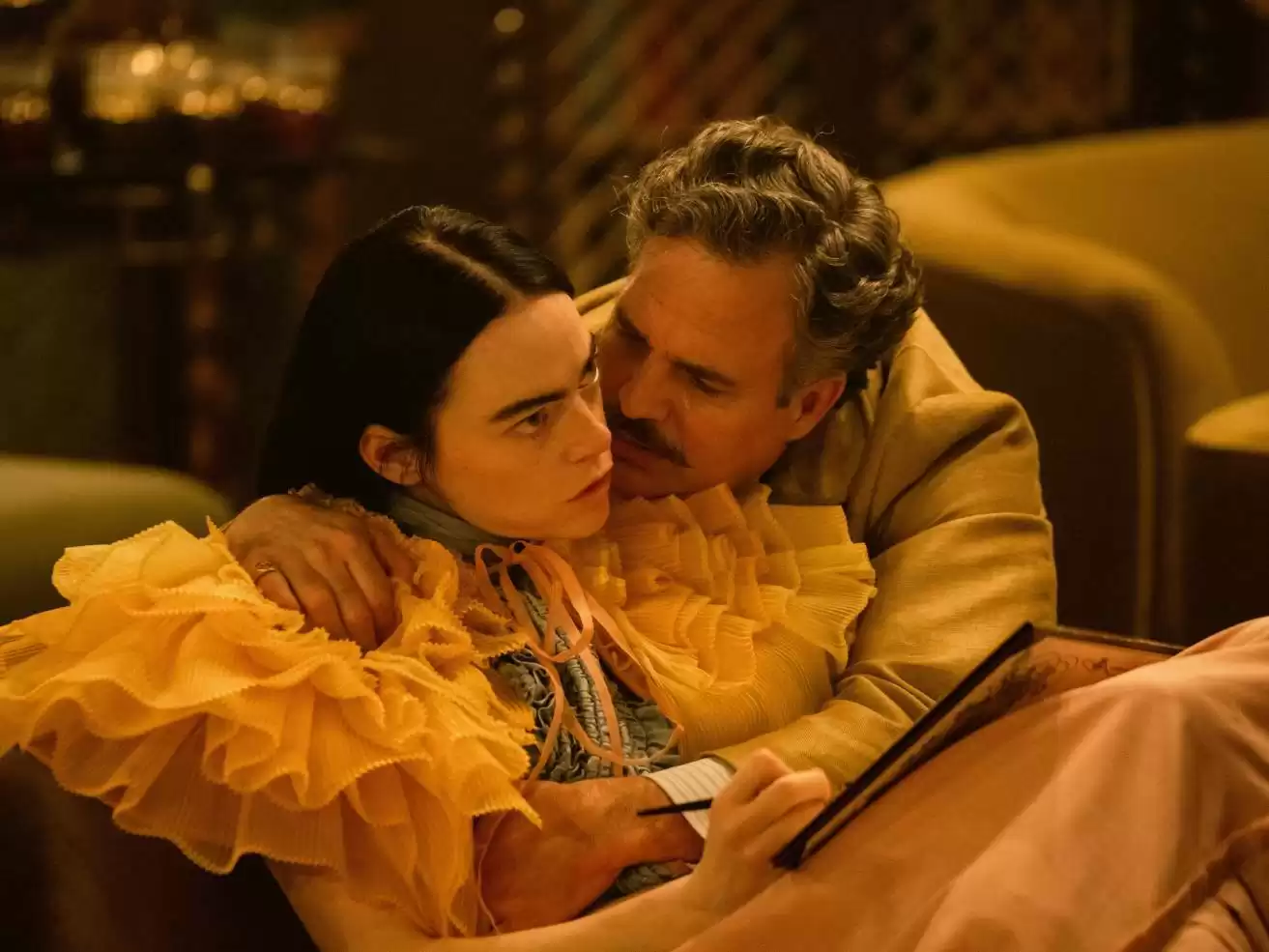'Emma Stone shines in 'Poor Things', a hilariously twisted Venice comedy for the ages'
Yorgos Lanthimos's feminist Frankenstein comedy, "Poor Things," is a hilarious and visually stunning masterpiece that explores female liberation.
Yorgos Lanthimos, the Greek director known for his film "The Favourite," has taken Alasdair Gray's 1992 novel, which has unfortunately been overlooked by many, and transformed it into a vibrant, playful, and sexually charged Victorian adventure. This film is undoubtedly the funniest of the year so far, blending humor with deeper themes and an abundance of explicit language. Emma Stone delivers a hilarious performance, Mark Ruffalo channels Terry-Thomas in full force, and the extravagant sets are a visual feast.
"Poor Things," much like Gray's book, is a reinterpretation of Mary Shelley's "Frankenstein." It takes the audience on a grotesque and macabre scientific journey, ultimately leading to an unconventional parent-child relationship. However, it doesn't stop there. The film then transforms into a "Candide"-esque odyssey of female liberation, filled with sex, profanity, and the presence of controlling men, all set against the backdrop of various European cities.
The film opens with a burst of color before transitioning to Robbie Ryan's stunning black and white cinematography, immersing us in Victorian London. We are introduced to Stone's character, a pregnant woman who tragically plummets into the Thames in an attempt to escape her unknown torment. Willem Dafoe's character, Dr. Godwin Baxter, a scientist, retrieves her lifeless body and performs a groundbreaking experiment by transplanting the unborn child's brain into her skull. Unaware of her true identity, he names her Bella, and she affectionately calls him "God."
Baxter, with his disfigured face covered in scars and his penchant for eccentric surgical experiments (such as his dog-chicken hybrids known as "chogs"), conceals a gentle soul with paternal feelings towards Bella. However, as time passes, it becomes clear that his affection does not extend to allowing her freedom. "Poor Things" explores the notion that men have an inherent desire to control and confine women, with Dafoe's scientist serving as a more benevolent captor.
In his pursuit of control, Baxter plans to marry Bella off to Max McCandless (played by Ramy Youssef), a mild-mannered medical student hired to document her developmental progress. This seemingly innocent surgeon soon becomes infatuated with Bella as she rapidly matures, teaching her geography and explaining the social norms, including the taboo of public masturbation.
Enter Ruffalo's character, Duncan Wedderburn, a womanizing lawyer tasked with arranging the prenuptial agreement. He whisks Bella away to a whimsical, pastel-colored Lisbon, where they embark on adventures, indulge in oysters, and engage in passionate lovemaking. The screenplay, written by Tony McNamara (co-writer of "The Favourite"), cleverly uses impish language to reimagine the world.
Similar to Lanthimos's previous work, "The Favourite," fish-eye lenses are heavily utilized in "Poor Things." This visual effect creates a sense of being submerged in a vast Victorian fishbowl, filled with wonder and eccentricity. A horse-drawn carriage turns a corner, revealing a faux horse head at the front and a hidden engine behind it.
"Poor Things" itself is a remarkable and unexpected hybrid. It seamlessly blends elements of a feminist coming-of-age story, a monster movie, and a raunchy, foul-mouthed romantic escapade. Yorgos Lanthimos, the Greek alchemist, has forged these disparate elements into a cinematic masterpiece.











Comments on 'Emma Stone shines in 'Poor Things', a hilariously twisted Venice comedy for the ages'